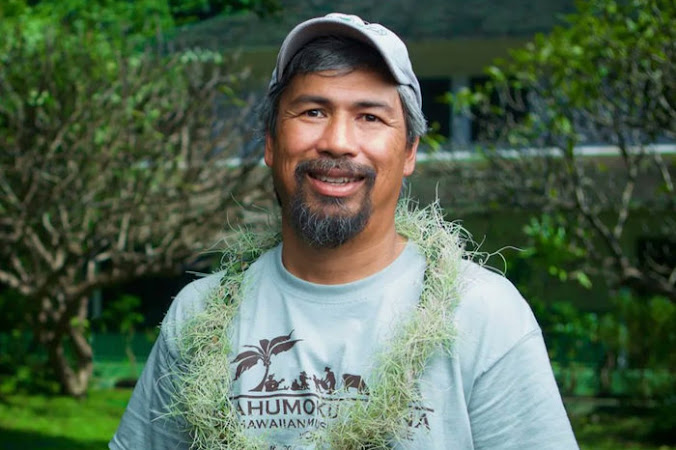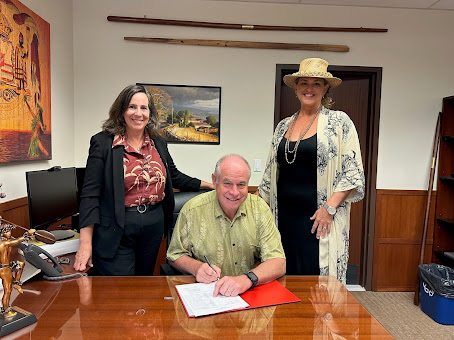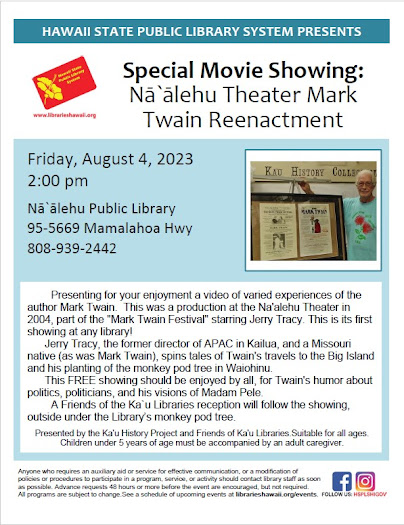He said the Office of Sustainability, Climate, Equity & Resilience will act as a central hub for coordinating efforts across various city departments and community organizations. It will work towards implementing innovative policies and programs to reduce greenhouse gas emissions, promote renewable energy, enhance energy efficiency, protect biodiversity, and fortify our infrastructure against climate change's impacts.
County Council Chair Kimball said, "The design and mission of OSCER is a new approach that has been specifically developed in response to a two-year process to identify gaps between plan and implementation in the areas of sustainability, climate change, equity, and resilience. The Office will provide technical, policy, and resource support both internally and with our community partners, resulting in effective and coordinated progress. I think Bill 48 and the collaborative approach used to develop it represents best practice in public policy development." OSCER is designed to collaborate with local businesses and residents to raise awareness about sustainable practices, foster eco-friendly initiatives, and advocate for responsible environmental policies. "Through active community engagement and partnerships, this Office will strive to create a unified front in the battle against climate change and ensure a greener, healthier future for Hawaiʻi Island," said Kimball.
Councilmember Rebecca Villegas said, "Big mahalo to everyone who contributed to getting Bill 48 over the finish line. I'm deeply honored to have played a part in creating this progressive new Office of Sustainability, Climate, Equity, and Resilience. While we still have a lot of work ahead of us, I believe we are now better equipped to navigate and mitigate the challenges directly related to climate change."
The Mayor said he extends his deepest gratitude to the members of the County Council, community leaders, and everyone who played a crucial role in the development and passage of Bill 48. He emphasized that this momentous achievement would not have been possible without the collective dedication and commitment of all those involved. Chair Kimball added, "It was wonderful to see it come to fruition when Mayor Roth signed it on Wednesday."
Calling this "a new chapter in Hawaiʻi County's history," the Mayor called upon all residents, businesses, and organizations to "unite to support the vital mission of the Office of Sustainability, Climate, Environment, and Resilience. Only through collective action can we hope to confront the challenges ahead and build a sustainable, resilient, and thriving future for our island home."
 |
| From Gov. Josh Green's facebook regarding signing an Emergency Proclamation enabling the administration to build mass housing in Hawai'i to address the affordability issue. |
The Governor's office also announced that under the Governor's Emergency Proclamation for Housing, "the state has identified about 50,000 new housing units in the pipeline to be built over the next decade. The state plans to help developers build those units by streamlining the approval process without compromising cultural and environmental protections."
Green said the HUD Secretary told him that Hawaiʻi families face some of the biggest challenges in the nation when it comes to finding affordable housing. At the time, she announced that Hawaiʻi was also eligible for a $3.1 billion nationwide HUD program to battle homelessness.
He said the state will apply for both the HUD homeless and new Pathway to Remove Obstacles housing grants to reduce housing barriers in this state.
Barriers caused by outdated zoning, land use policies, or regulations;
Inefficient procedures;
Gaps in available resources for development;
Deteriorating or inadequate infrastructure;
Lack of neighborhood amenities;
Challenges to preserving existing housing stock such as increasing threats from natural hazards, redevelopment pressures, or expiration of affordability requirements.
 |
| Wayne Chung Tanaka says the housing crisis "requires cool heads and a focus on relevant facts - least a dire situation be made even worse." Photo from Sierra Club |
As we know, however, crises require cool heads, careful analysis, and a focus on relevant facts — lest a dire situation be made even worse. Unfortunately, the factual matter of what this proclamation says should be cause for deep concern, for nearly everyone calling Hawai'i home. It not only rolls back decades of protections for our environmental and cultural integrity, but also attacks the very foundations of our democratic society, for a purported “solution” that would cause much more harm than good.
First, the use of emergency powers to whack-a-mole the complex and multifaceted housing crisis sets an incredibly dangerous precedent. What would distinguish this action from a future governor making an emotional declaration of “crime” as an emergency — and then adopting his own laws for curfew hours and fast-tracking private prison development, regardless of community input, social impacts or the foreclosure of other public health and safety solutions?
Second, all of us concerned with the state budget should know that the proclamation suspends the Legislature’s role in directing how taxpayer dollars are spent. It also suspends the statutory procurement processes for competitive bidding that safeguard against waste and corruption. In other words, money set aside for any other purpose could be redirected behind the scenes to hand- selected corporations, for anything remotely related to housing.
Fourth, the proclamation’s housing policies are controversial at best and harmful at worst. The proclamation lacks any affordability requirements, income limits, or a meaningful definition of “Hawaii resident.” Nothing would prevent the predictable outcome, where new arrivals with cash in hand quickly snap up new homes — placing even more of our limited developable lands and resources into the hands of the most fortunate, further widening our wealth gap, and driving more kama‘aina off-island.
Addressing Section 8 discrimination, tackling our ongoing short-term rental problems, and regulating private equity firms that buy and flip rental housing are just some of many, many strategies that would target actual, direct causes of local residents’ housing woes. Such strategies would not benefit developers, however, and do not appear to be on the governor’s radar.
Fifth, the proclamation places our food security at risk. Its decimation of the Land Use Commission’s authority would allow agricultural lands to be summarily approved for development, 100 acres at a time, without express, fact-based conditions to minimize impacts to present or future local food production. This could also happen without public notice or input, given the Sunshine Law suspension.
Sixth, the proclamation’s supposed safeguards are illusory. The lead housing officer can approve and negotiate projects without any review or approval by the much-touted 22-member “Build Beyond Barriers Working Group,” which itself lacks the expertise to evaluate the myriad considerations associated with development in Hawai'i, including our limited and fragile resources, dire need for water and food security, and unique island values.
This all powerful “LHO” also holds sole authority to investigate and enforce compliance with everything from owner- occupancy requirements to construction and community commitments — a Herculean task for one project, much less dozens involving tens of thousands of housing units across the islands. Enforcement would also be literally impossible after the intended one-year life of the proclamation, as the lead housing officer position it creates would no longer exist.
Emotions aside, the facts of the matter are that even beyond an environmental and cultural lens — through which its failings are obvious and alarming — this proclamation is an affront to our system of government, fiscal accountability, public transparency and the socioeconomic realities of life in our islands. Those of us recognizing its potential for long-lasting harm will do our best to see it rescinded. Will you join us? See https://sierraclubhawaii.org/
To read comments, add your own, and like this story, see facebook.com/kaucalendar.See latest print edition at kaucalendar.com, in the mail and on stands.








.jpg)







.jpg)

